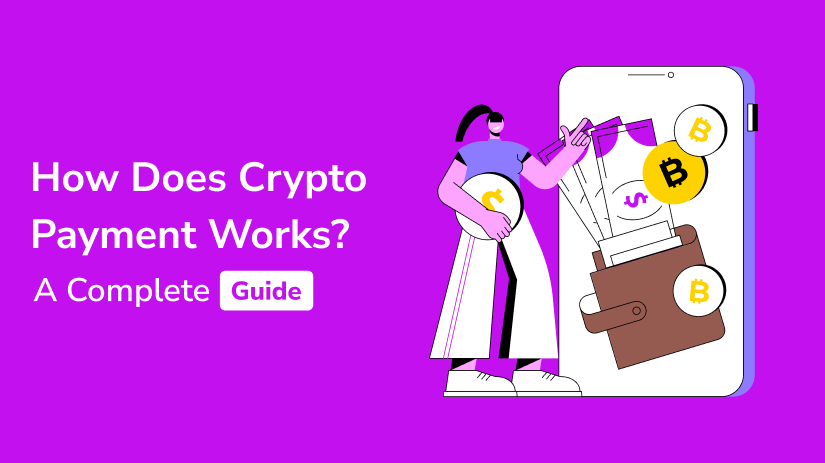In recent years, cryptocurrencies have gained a lot of popularity, not just as investment assets but also as a means of payment. With the rise of digital currencies like Bitcoin, Ethereum, and others, understanding how crypto payments work has become essential for businesses and individuals alike.
In this comprehensive guide, we’ll delve into the workings of crypto payments, from the basics to the underlying technology that powers them.
What is Cryptocurrencies?
Before diving into crypto payments, let’s grasp the basics of cryptocurrencies.
Unlike traditional fiat currencies issued by governments, cryptocurrencies are digital or virtual currencies secured by cryptography. They operate on decentralized networks based on blockchain technology, which ensures transparency, security, and immutability.
Connect with us for Fintech Development Needs
Trusted by companies like Plaid, Yodlee, Codat.
How Crypto Payments Works
Crypto payments involve transferring digital currencies from one wallet to another. Here’s a step-by-step breakdown of how the process typically works:

Initiating the Transaction
The sender (payer) initiates a payment by accessing their cryptocurrency wallet. This wallet can be a software wallet, a hardware wallet, or a wallet provided by a cryptocurrency exchange.
Inputting Transaction Details
The sender specifies the recipient’s wallet address and the amount of cryptocurrency they want to transfer. Wallet addresses are alphanumeric strings unique to each wallet.
Verification
The transaction is broadcast to the respective cryptocurrency network. Miners or validators on the network verify the transaction’s validity and add it to a block if confirmed.
Confirmation
Depending on the cryptocurrency and network congestion, transactions require a certain number of confirmations before being considered final. Confirmations provide security against double-spending.
Completion
Once the transaction is confirmed, the recipient (payee) receives the cryptocurrency in their wallet. They can then use it for further transactions or convert it into fiat currency.
Key Components of Crypto Payments

Wallets
Cryptocurrency wallets store public and private keys necessary for sending and receiving cryptocurrencies. They come in various forms, including software wallets (desktop or mobile apps), hardware wallets (physical devices), and paper wallets (printed QR codes).
Blockchain Technology
Cryptocurrency transactions are recorded on a public ledger known as the blockchain. Each block contains a group of transactions, and new blocks are added to the chain in chronological order, forming a decentralized and transparent transaction history.
Connect with us for Fintech Development Needs
Trusted by companies like Plaid, Yodlee, Codat.
Miners or Validators
Miners (in proof-of-work systems) or validators (in proof-of-stake systems) play a crucial role in confirming and validating transactions. They secure the network by solving complex cryptographic puzzles (proof-of-work) or staking cryptocurrency (proof-of-stake) to verify transactions.
Smart Contracts (Optional)
Some cryptocurrencies, like Ethereum, support smart contracts, self-executing contracts with predefined conditions. Smart contracts enable complex transactions and automate processes without intermediaries.
As you know the key components and how does crypto payment works. Let’s see what benefit will you get by using crypto payments.
Advantages of Crypto Payments

Decentralization
Cryptocurrencies operate on decentralized networks, eliminating the need for intermediaries like banks and payment processors.
Low Transaction Fees
Crypto transactions often incur lower fees compared to traditional banking and payment systems, especially for cross-border transactions.
Speed
Cryptocurrency transactions can be processed much faster than traditional bank transfers, especially for international payments.
Security
Blockchain technology provides a high level of security and immutability, reducing the risk of fraud and unauthorized transactions.
To develop your crypto payment platform you should connect with ProtonBits. We have expertise in Coinbase development services, BlockCypher development services, Binance development services, and so on. Our expert fintech developers can create financial software solutions and integrate multiple fintech APIs to fulfill your custom requirements.
Challenges and Considerations
Despite their benefits, crypto payments come with certain challenges and considerations:
Volatility
Cryptocurrency prices can be highly volatile, posing risks for both buyers and sellers.
Regulatory Uncertainty
Regulatory frameworks surrounding cryptocurrencies vary globally, leading to uncertainty and compliance challenges.
Adoption and Accessibility
While crypto adoption is growing, it still faces barriers to mainstream acceptance, including usability and awareness issues.
Conclusion
Crypto payments represent a paradigm shift in the way we perceive and conduct financial transactions. By leveraging blockchain technology, cryptocurrencies offer a secure, efficient, and decentralized alternative to traditional payment systems.
While challenges remain, the growing adoption and innovation in the crypto space continue to reshape the future of finance. Understanding how does crypto payment works is not only beneficial but increasingly necessary in today’s digital economy.
Happy Crypto Payments!!
Connect with us for Fintech Development Needs
Trusted by companies like Plaid, Yodlee, Codat.





